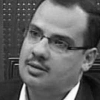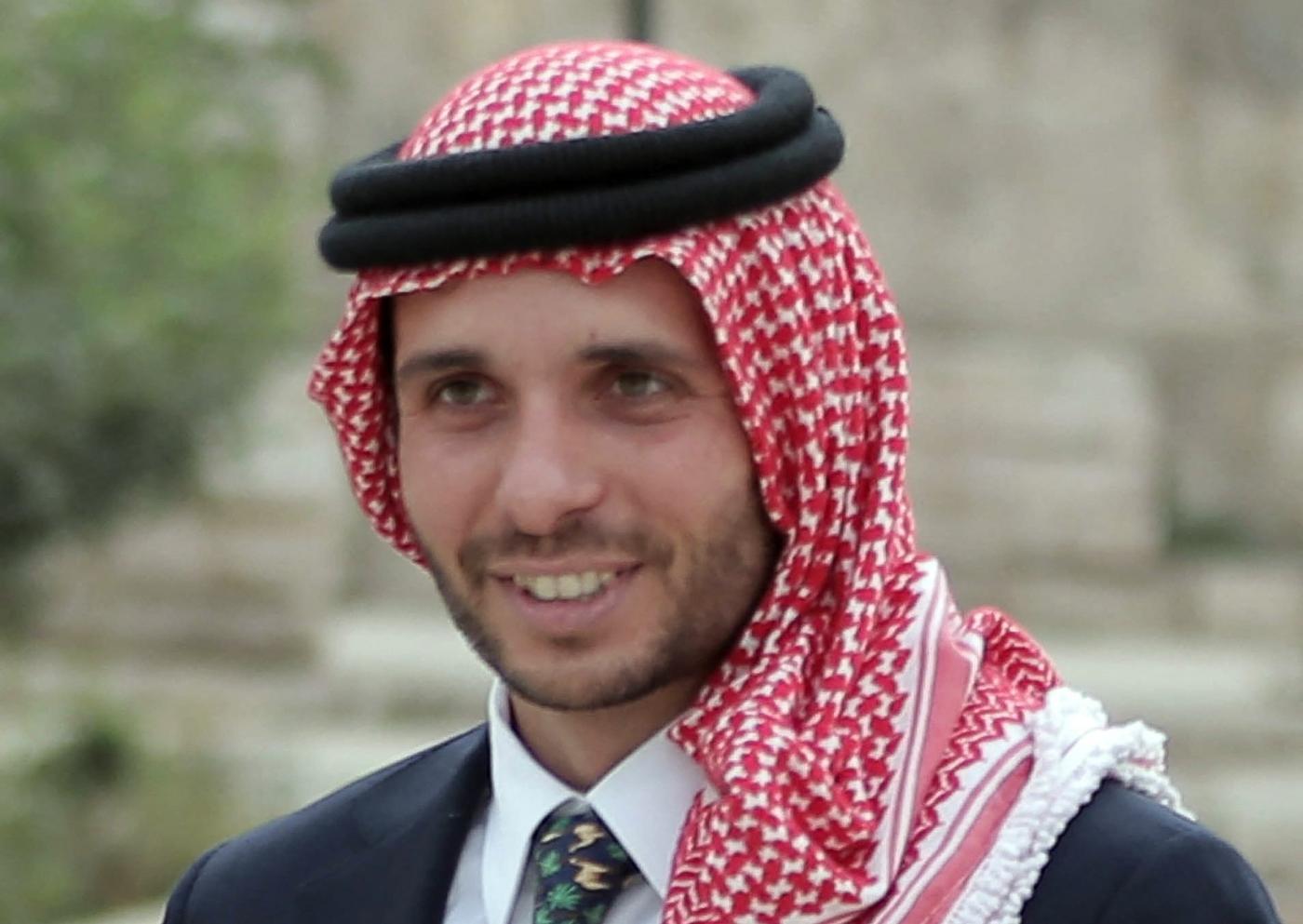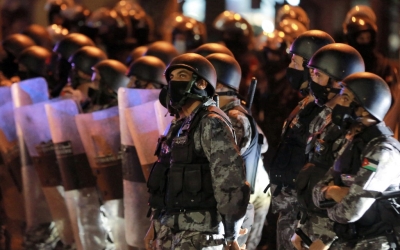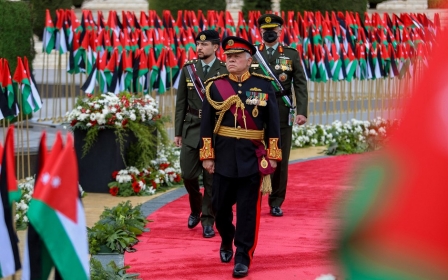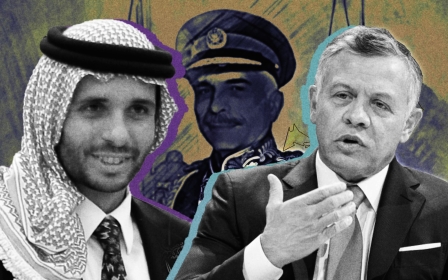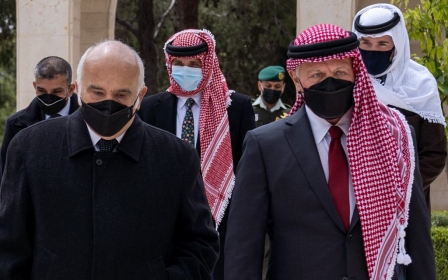Jordan: How the king is consolidating his powers
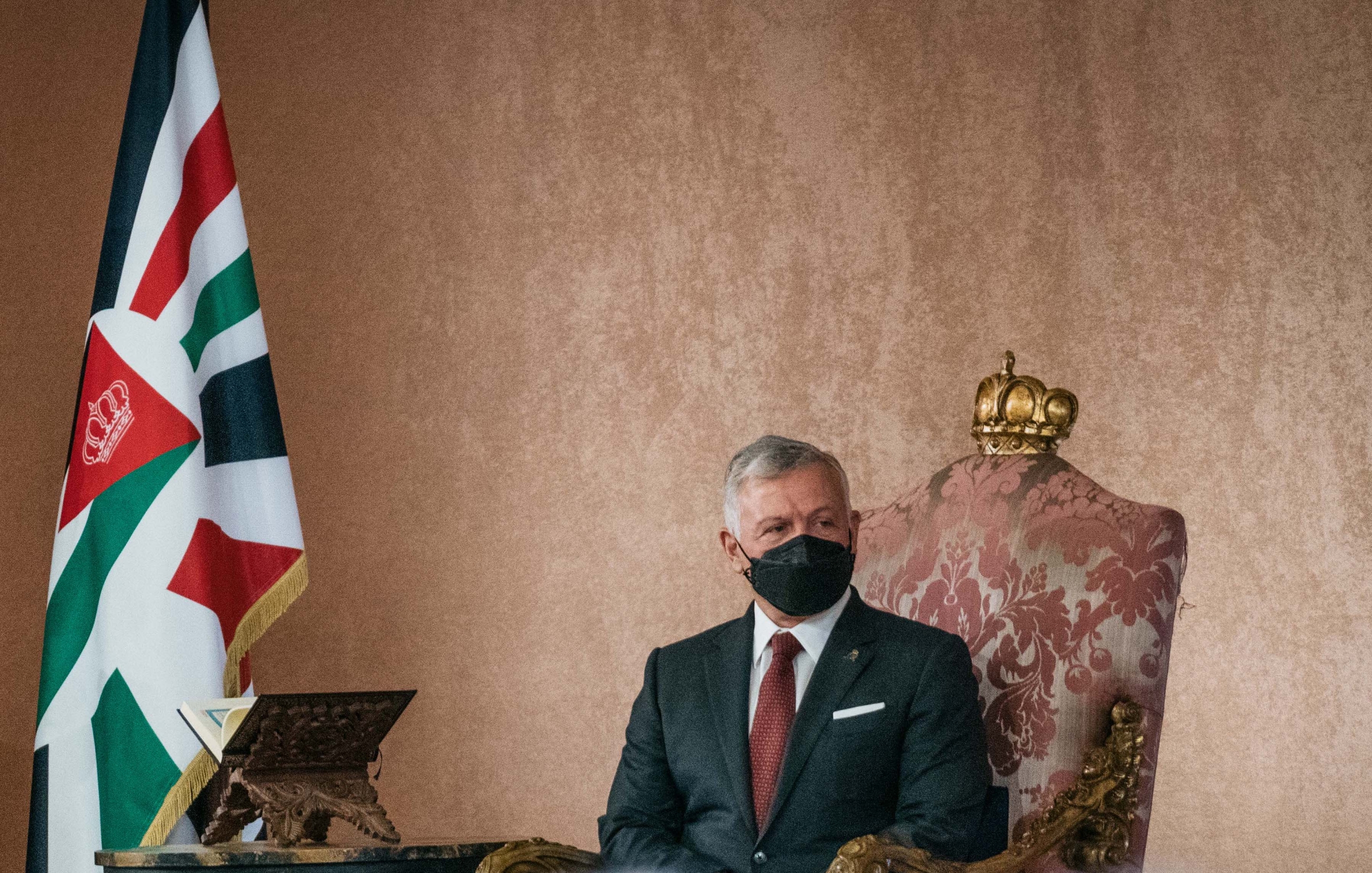
Jordan’s parliament has approved broad constitutional amendments after King Abdullah II last year formed a committee tasked with modernising the country’s political system.
It is notable that the word “modernise” is being used, rather than “reform”, which has been the primary demand of opposition forces since the 2011 Arab Spring. Protesters have called for limits to the king’s powers and for the institution of a parliamentary democracy in Jordan.
Prince Hamzah's moves, which were the subject of much speculation last year, clearly ignited a wave of anxiety within the royal palace
But the constitutional amendments approved this month do the opposite, serving mainly to increase and consolidate the king’s powers. The amendments enable the king to appoint top public security and judicial officials, along with the grand mufti and royal advisers. They also stipulate the establishment of a national security council controlled by the king, which would handle all issues related to defence and security.
Jordan’s 1952 constitution has been amended on a number of occasions over the decades, but more than half of these amendments have occurred since the 2011 outbreak of the Arab Spring, as activists demanded political reforms in hopes of increasing democracy and freedom in the country.
The latest amendments constitute the largest, broadest and most fundamental shift to date, encompassing 30 changes to the 131-article constitution. This has prompted some commentators to suggest that the country has approved an entirely new constitution, rather than merely amending the existing one.
New MEE newsletter: Jerusalem Dispatch
Sign up to get the latest insights and analysis on Israel-Palestine, alongside Turkey Unpacked and other MEE newsletters
Royal feud
There is no doubt that the new constitutional amendments will transform political life in Jordan, while fuelling widespread controversy among the country’s citizens. But what are the real motives behind this constitutional overhaul?
We cannot analyse this situation without considering the developments that gripped the royal family last April, after a dispute erupted between the king and his half-brother, Prince Hamzah, who was placed under house arrest. There was initial speculation that the prince might have been plotting to overthrow the king, but nothing was confirmed.
Two months later, the king summoned a 92-member committee, mostly comprising high-ranking former officials and political leaders, whom he tasked with “modernising” the country’s political system. This past October, the committee issued a set of recommendations, including constitutional amendments and new laws concerning elections and political parties. The measures were passed by the Jordanian parliament with a large majority, as 104 of the 112 MPs present voted to forge ahead with the amendments.
Expansive powers
The upshot is an unprecedented expansion of the powers of the king, who now tightly controls all security, military and judicial institutions in the country. The new national security council will enjoy expansive powers, all under the direction of the king.
There is one obvious explanation for this constitutional and political transformation: Prince Hamzah’s moves, which were the subject of much speculation last year, clearly ignited a wave of anxiety within the royal palace, prompting the king to seek to cement his control over Jordan’s key institutions. He wants to secure the kingdom’s leadership and weaken any possible future rebellion.
At the same time, the method by which the constitution was amended aims to satisfy the concerns of the public. The process was designed to make citizens feel that the amendments were the result of the work of a specialised and independent committee, which included representation from across the political spectrum.
It is the committee that produced these amendments, not the government or the king - or so the argument goes. Consequently, the system has been “modernised”, and the desires of the people “fulfilled”.
The views expressed in this article belong to the author and do not necessarily reflect the editorial policy of Middle East Eye.
This article is available in French on Middle East Eye French edition.
Middle East Eye delivers independent and unrivalled coverage and analysis of the Middle East, North Africa and beyond. To learn more about republishing this content and the associated fees, please fill out this form. More about MEE can be found here.


